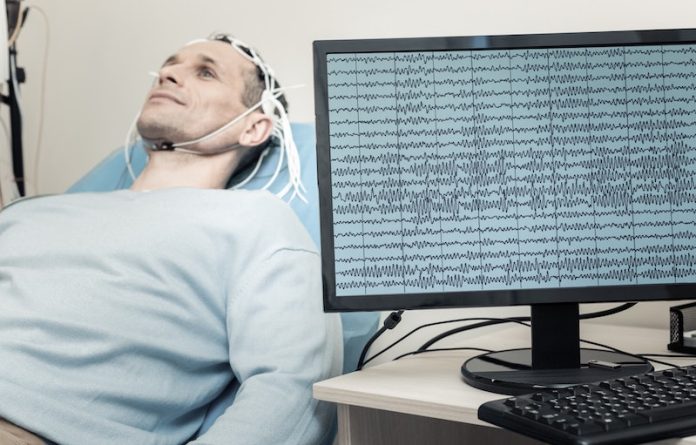
In a study from the University of Essex, scientists found a new technique for monitoring brain waves that can identify the music someone is hearing.
They hope the project could lead to helping people with severe communication disabilities such as locked-in syndrome or stroke sufferers by decoding language signals within their brains through non-invasive techniques.
There have been successful previous studies monitoring and reconstructing acoustic information from brain waves.
But many have used more invasive methods such as electrocortiography (ECoG), which involves placing electrodes inside the skull to monitor the actual surface of the brain.
In the study, the team wanted to find a less invasive way of decoding acoustic information from signals in the brain to identify and reconstruct a piece of music someone was listening to.
They used a combination of two non-invasive methods—fMRI, which measures blood flow through the entire brain, and electroencephalogram (EEG), which measures what is happening in the brain in real-time—to monitor a person’s brain activity while they are listening to a piece of music.
Using a deep learning neural network model, the data was translated to reconstruct and identify the piece of music.
Music is a complex acoustic signal, sharing many similarities with natural language, so the model could potentially be adapted to translate speech.
The research involved reusing fMRI and EEG data collected originally as part of a project at the University of Reading.
That project involved participants listening to a series of 40-second pieces of simple piano music from a set of 36 pieces differing in tempo, pitch, harmony, and rhythm.
Using these combined data sets, the model was able to accurately identify the piece of music with a success rate of 71.8%.
The eventual goal of this strand of research would be to translate thought, which could offer an important aid in the future for people who struggle to communicate, such as those with locked-in syndrome.
The team hopes that if they can successfully decode language, they can use this to build communication aids and could one day provide a lifeline for people with severe communication disabilities.
If you care about brain health, please read studies about how the Mediterranean diet could protect your brain health, and how to boost the brain’s cleaning crew to mop up Alzheimer’s.
For more information about brain health, please see recent studies about how the COVID-19 virus damages brain cells and these antioxidants could help reduce dementia risk.
The study was conducted by Dr. Ian Daly et al and published in Scientific Reports.
Copyright © 2023 Knowridge Science Report. All rights reserved.



